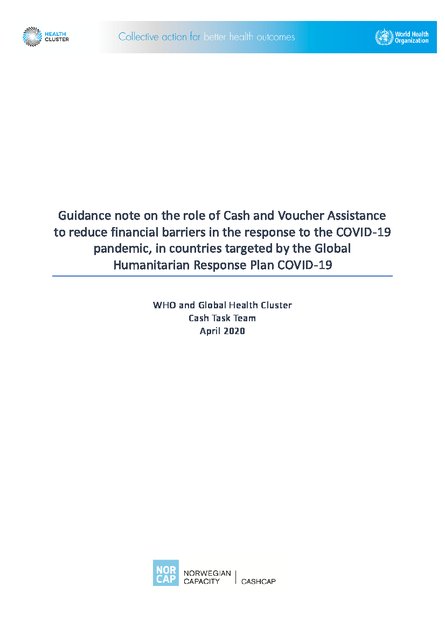
Key messages and response options:
The response to COVID-19, including treatment of patients, is a Common Good for Health.
When COVID-19 is declared a national emergency, governments should consider suspending user fees for essential health services by all providers for the duration of the crisis.
• To compensate the loss of revenues, governments should establish a system through front-loading budgets and pre-funding public and private providers, or through contracting and reimbursements mechanisms, including health emergency equity funds or voucher systems.
In practice, it is likely that patients will still have formal or informal expenditures related to COVID-19 treatment or for essential health services, be it in a health facility or at home, or related to indirect costs. The increased health needs coupled with the general trend of income loss due to lockdown measures can lead to increased financial barriers.
• The measure above can be complemented through targeted cash or voucher assistance to such households for specific health care costs.
• Multi-purpose cash transfers to meet basic needs for vulnerable households that have lost income due to lockdown measures, or because they are quarantined and/or otherwise caring for a sick household member, will improve their ability to access health services.
To prevent transmission by suppliers and among staff that continue to work in vital sectors, including the delivery of humanitarian goods and CVA, or from staff to clients and beneficiaries, they are all expected to implement the basic preventive measures to reduce the risk of transmission.
• Ensure that clients or beneficiaries can access items safely, and are not put at risk, for example, by ensuring that markets respect basic risk mitigation protocols.
• Where feasible use mobile or electronic contact less payments.
• The contact surfaces of ATM machines should be regularly disinfected and ensure that users keep 1.5 meter distance between them.